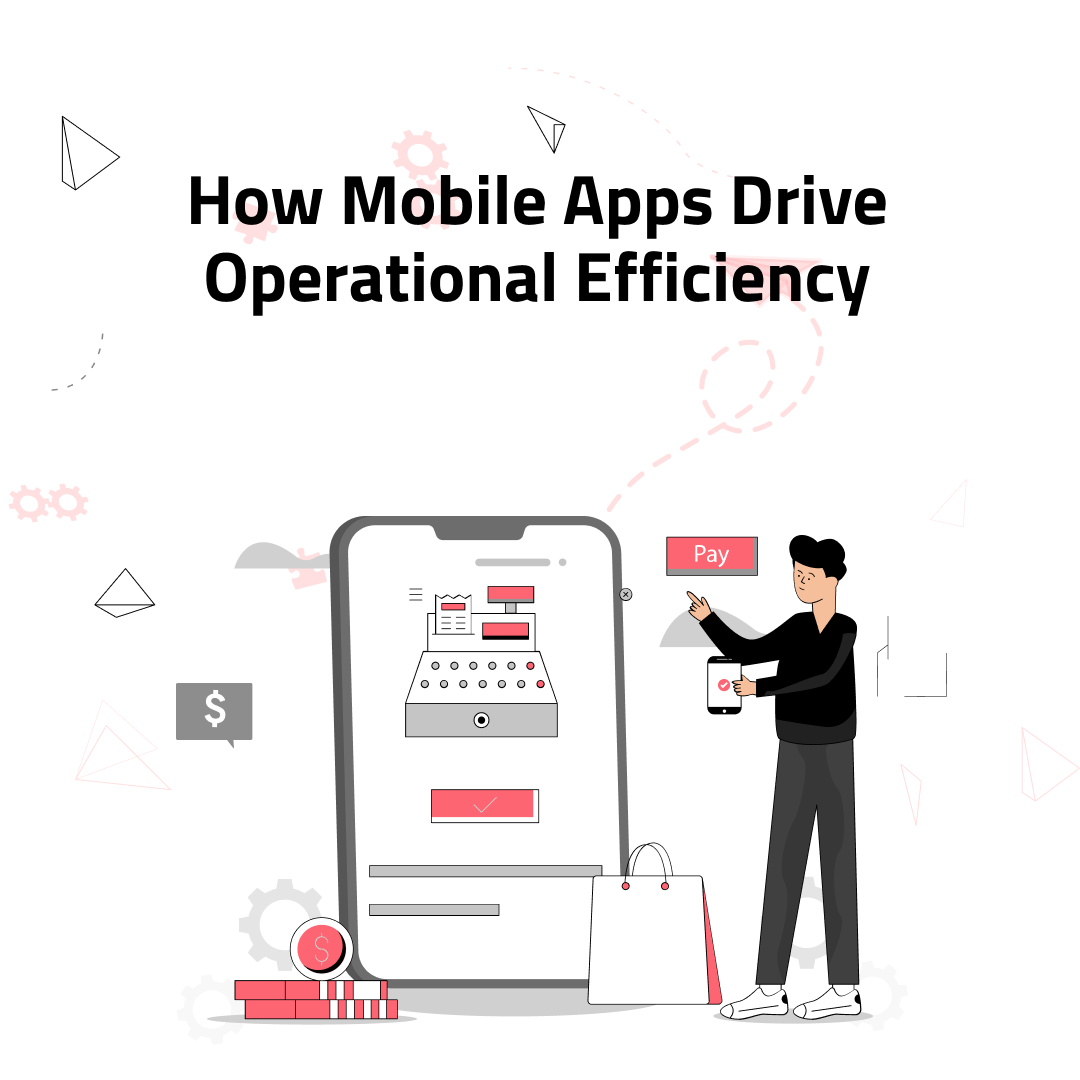
In today’s fast-paced business environment, efficiency is the new competitive edge. Companies that streamline operations save time, reduce costs, and deliver better customer experiences. One of the most effective tools enabling this transformation is Mobile apps
From real-time communication to workflow automation, mobile apps are reshaping how businesses operate internally and externally. Let’s dive into how mobile apps drive operational efficiency and why every forward-thinking company should leverage them.
Why Operational Efficiency Matters
Operational efficiency means achieving maximum output with minimum wasted effort or expense. For businesses, this translates into:
Mobile apps act as catalysts in achieving these outcomes.
6 Ways Mobile Apps Drive Operational Efficiency
1. Streamlined Communication
Internal communication apps reduce reliance on emails and meetings. With tools like Slack, Microsoft Teams, or custom-built apps, employees can collaborate instantly, share files, and resolve issues faster, saving hours of back-and-forth.
2. Automation of Routine Tasks
Mobile apps automate repetitive processes such as:
This frees up teams to focus on high-value tasks while reducing human error.
3. Real-Time Data Access
With mobile apps, decision-makers no longer need to wait for weekly reports. Sales teams can access CRM data on the go, managers can monitor performance dashboards, and logistics teams can track shipments in real time. This accelerates decision-making and reduces bottlenecks.
4. Enhanced Workforce Mobility
Field employees, like sales reps, technicians, and delivery staff, can update job statuses, capture signatures, and report issues directly through mobile apps. This eliminates paperwork delays and ensures information flows seamlessly across departments.
5. Customer Self-Service
Mobile apps allow customers to handle simple tasks themselves, booking appointments, tracking orders, or paying bills. This reduces workload on support teams while improving customer satisfaction.
6. Data-Driven Insights
Mobile apps collect valuable usage and operational data. By analyzing this data, businesses can:
Real-World Example
A logistics company implemented a fleet management mobile app that provided drivers with optimized routes and real-time delivery updates. The result? Fuel costs dropped by 15%, delivery times improved, and customer complaints decreased significantly.
Best Practices for Using Mobile Apps to Boost Efficiency
Conclusion
Mobile apps aren’t just customer-facing tools, they’re strategic assets that can transform the way businesses operate. By streamlining communication, automating processes, and providing real-time insights, mobile apps drive operational efficiency that directly impacts profitability.
Companies that embrace mobile solutions today will not only reduce costs but also gain a long-term competitive advantage.
Have an app idea and want to get started? Contact us now!
